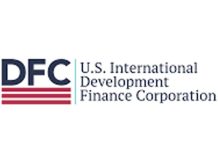The Central Bank of Nigeria (CBN) directs banks and financial institutions to disclose details of dormant accounts, unclaimed balances, and other financial assets on their official websites.
In a circular titled “Guidelines on Management of Dormant Accounts, Unclaimed Balances, and Other Financial Assets in Banks and Other Financial Institutions in Nigeria,” the CBN instructs financial institutions to display the names of account holders, account types, and branch locations. The circular is signed by Michael Akuka on behalf of the Director of the Financial Policy and Regulation Department.
For financial institutions without websites, the directive mandates that they publish the information on their industry association’s website. The details must also be made available annually in at least two national newspapers or displayed at state and unit microfinance banks.
The CBN clarifies that publishing dormant account details aligns with the Nigeria Data Protection Act, 2023 (NDPA), which permits exceptions under Section 25 (b). It also complies with Section 72 (ii) of the Banks and Other Financial Institutions Act (BOFIA), which empowers the CBN to regulate the management of unclaimed funds in financial institutions.
A dormant account refers to an account that has remained inactive for at least one year. This directive aims to promote transparency and ensure unclaimed funds are properly managed.
In a related move, the CBN instructs banks to comply with stricter limits on insider lending, giving financial institutions a 180-day deadline to regularize insider-related credit facilities that exceed statutory limits.
Under Section 19 of BOFIA 2020, banks must limit lending to insiders to a specific percentage of their total loan portfolio. The CBN notes that some financial institutions have obtained approvals for insider-related loans without clear deadlines for compliance, creating regulatory gaps.
By enforcing these measures, the CBN aims to strengthen governance, enhance financial discipline, and prevent undue influence in the banking sector.













